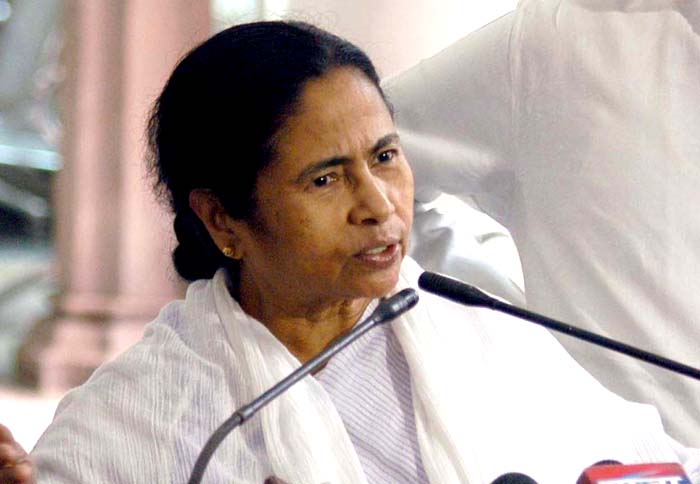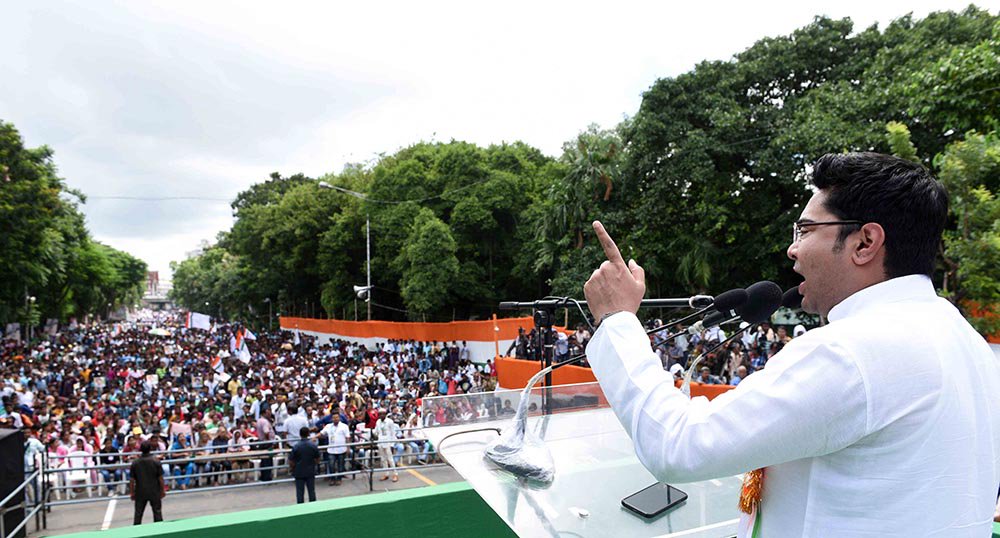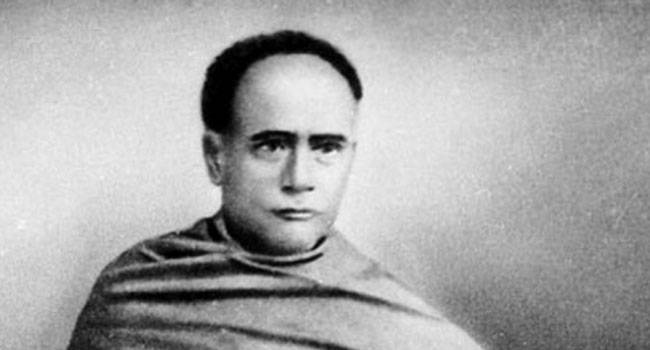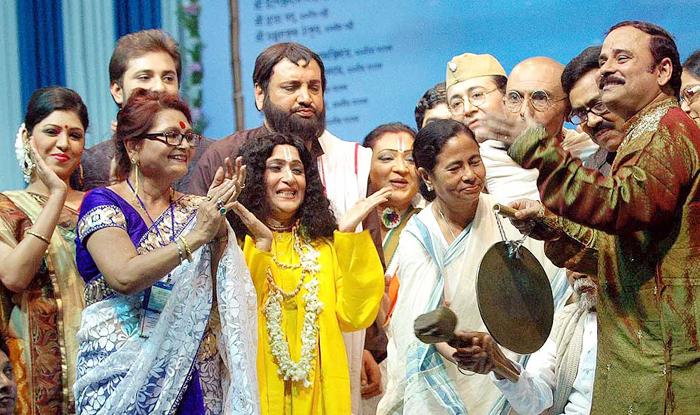Today is August 28, the foundation day of Trinamool Chhatra Parishad (TMCP). Like every year, this year too, a huge students’ rally took place at the Mayo Road crossing in Kolkata, where the chief speaker was trinamool Congress Chairperson Mamata Banerjee.
As one of the marquee speakers, Abhishek Banerjee threw down the gauntlet to the BJP that leave leave along Mamata Banerjee, it would lose 10-0 to even TMCP.
Salient points of Abhishek Banerjee’s speech:
Today’s rally has been converted into a sea of humanity. We are here to take instructions from our supreme leader, Mamata Banerjee. She will show us the way to the future.
On August 11, the BJP had held a rally at this very place. Well, whether it was a rally or a circus, it was difficult to differentiate.
The heartfelt emotions and unbreakable unity of the students who came today proves that those spread rumours, and indulge in dirty talk and accusations against Trinamool Congress and Mamata Banerjee do not have the heart to fight even Trinamool Chhatra Parishad and Trinamool Youth Congress, leave alone any senior leader or block president of the party.
I want to make it clear to Dilip Babu and his party members, the organisational strength that Chhatra Praishad and the youth wing of the party have built far and wide across Bangla would help Trinamool defeat them 10-0; taking on Mamata Banerjee is a far cry.
They have attacked the Chief Minister of Bangla using the crudest of languages – stuff into holes, break hands and legs, send to hospitals, send etc.
I want to ask Dilip Babu, to which hospital would you send me – to one of the multi-super hospitals that Mamata Banerjee has built? To which burial ground would you send me – to one of those which was renovated by Mamata Banerjee? In which house would you imprison me – in one of those built as part of my government’s Gitanjali Scheme? In which ground would you bury me – where golden harvest occurs?
They are in such a state that they do not have any credible worker or leader in Bangla. They are hiring people from other States, who have no idea about the language, culture, tradition and civilisation of Bangla. They are hiring people to even build stages for rallies. And they are talking of capturing Bangla! The party has neither aim nor programme nor purpose.
They are talking about fighting in 12 seats in the State. I say let the fight in and win 12 booths. ‘Change, not revenge’ is our slogan. We do not do the politics of ‘destroy and crush’, like the CPI(M) did for 34 years. We do the politics of ‘build, create, beautify’.
Where seven years back the education sector was mired in darkness, now under the leadership of Mamata Banerjee, there is the light of knowledge in institutions across the State. Combining government and private, 24 universities have been established, as well as more than 50 government colleges. Many schools have been upgraded and modernised.
We had said, we will return the land to the unwilling farmers of Singur, our leader has done so. On the other hand, they had said ‘Achhe din aane waale hain’, that two crore people would get jobs; well, even with a microscope you would not able to discern any new jobs.
Many political parties have been stopped in their tracks through coercion, but Trinamool Congress cannot be. This party is like raw iron, the more you beat it, the better it will become.
I ask the Opposition to prove what you have alleged against me. Abhishek Banerjee is ready to die but will not tolerate any misdemeanour. We know how to fight; we will fight till the end, matching punch with punch.
Let me quote the poet Sukanta Bhattacharya: ‘Adim hingsra manabikatar jodi ami keu hoi/ Swajanharano shashane toder chita ami tulboi.’ This fight will continue.
I am reminded of the world of Netaji. He had said: ‘Give me blood, and I will give you freedom,’ whereas Dilip Babu and people like others say, if you stay in power, we will bathe you in blood.
Trinamool Congress is not a party to keep quiet, it will fight it out on the ground. Those who say we will do this and do that to Trinamool, let me say, if Mamata Banerjee gives permission, we will show, in a democratic way, how much sound a cracked drum can really make. There is no use threatening us. Trinamool Congress can never be kept behind a barrier.
If Swami Vivekananda had kept quiet, we would not have found a capable representative at the World Parliament of Religions. And today that party, by distorting his thoughts, is trying to teach us what to eat and what to wear.
Netaji had said: ‘Give me blood, and I will give you freedom.’ If he had kept quiet, no one would have had the power to set up the Azad Hind Fauj and shake the British by the roots.
If Raja Ram Mohun Roy had kept quiet, the custom of sati would not have been stopped.
Similar to these example, if Mamata Banerjee had kept quiet, we would have had to still live in CPI(M)’s reign of terror. So, Mamata Banerjee and Trinamool Congress never kept quite.
Come, let us take a vow to continue our fight through a united front of Trinamool Chhatra Parishad, Trinamool Youth Congress and the people of Bangla
The fight of students and the youth would continue. With this, I am ending my speech.
Jai Hind, Vande Mataram, hail Trinamool Congress, hail Mamata Bandyopadhyay, hail education and progress, hail a harmonious life, hail Trinamool Youth Congress, Vande Mataram.










